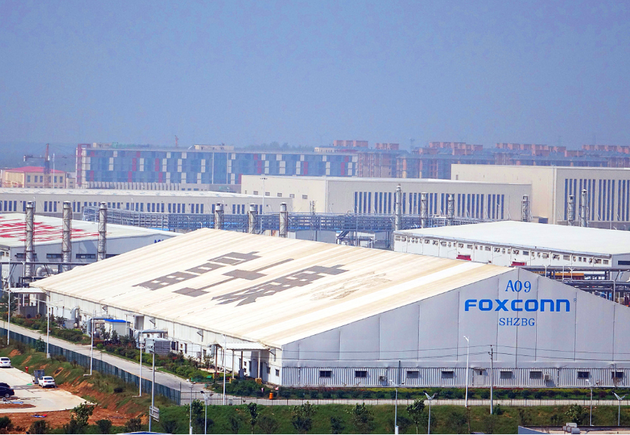Feb. 6 (NBD) -- Hon Hai Precision Industry Co Ltd (Hon Hai), better known by its trade name Foxconn, the world's largest contract electronics manufacturer, announced that it will invest approximately 342 million U.S. dollars in AI (Artificial Intelligence) research and development, a move to transform itself into an AI-driven industrial internet firm.
The money will be used to cultivate AI talents, study related aspects of industrial internet like Internet of Things (IoT) and conduct big data analysis.
The related person-in-charge at Foxconn told NBD that AI technology or robots the company is to develop are not meant to simply replace employees of Foxconn but to carry out the monotonous and dangerous work which the employees are reluctant to do.
The person also underlined that the company will keep its current staff size and the number of employees in mainland China will remain at over 1 million.
It's noticed that prior to tapping in the AI sector, Foxconn had made a series of attempts to shed off the tag of "manufacturing", including the deployment in the e-commerce field. However, those moves didn't turn out to be successful.
Will AI be the key to transformation for Foxconn this time?
Company to build an AI application ecosystem
Hon Hai announced the launch of two research programs.
Firstly, a "Hon Hai Industrial Internet, AI Application and Research Institute" will be set up to assist the development of AI innovation dubbed "industrial internet + robots".
Under this program, a total of NT$10 billion (342 million U.S dollars) will be invested over the five years in the cultivation of AI talents, study of IoT application and other related spheres of industrial internet as well as big data analysis, so as to complete the transition into an industrial internet company driven by AI.
Secondly, Dr. John Craig Venter, the U.S. geneticist who is regarded as one of the leading scientists of the 21st century for his invaluable contributions in genomic research, will be invited to work with Hon Hai to provide prospective health management service across the Asian-Pacific region.
Terry Gou, founder and chairman of Hon Hai said that the company, starting from manufacturing, boasts more than 40 years of world-class expertise and technology which in combination with AI can create an application ecosystem of AI and industrial internet.

Photo/VCG
Disappointing iPhone sales force Foxconn to venture into AI
Gou underscored that Foxconn aims to become a global AI innovation platform, instead of a mere manufacturing factory.
However, when Foxconn is mentioned, people usually think of "the biggest contract manufacturer for Apple". As over 50 percent of Foxconn's revenue comes from Apple, any move and performance of Apple will have an impact on Foxconn.
Apple posted unsatisfactory sales of new iPhone in 2017. According to results for the first quarter of its fiscal year 2018 which ended December 31, 2017, Apple sold 77.316 million iPhones, representing a drop of 1 percent year on year.
Hon Hai reported a revenue of NT$ 1.0788 trillion (37 billion U.S. dollars) for the third quarter of 2017 and the net income attributable to the parent during the same period of time plummeted by 39 percent year on year to NT$ 21 billion (718 million U.S. dollars). The drop in net income was widely believed to result from undesirable iPhone sales.
As a matter of fact, Foxconn anticipated the hidden danger from its heavy dependence on Apple and it had been seeking for transformation to cast off its image as a mere factory over the past several years.
Gou emphasized time and again that Foxconn was shifting towards the strategic direction of "marketing and sales". Besides, an insider at Foxconn once said that Hon Hai was leaning towards the deployment in the sales market, as electronics manufacturing had entered times of low profits.
It's noticed that Foxconn had been focusing on channels expansion, acquiring other brands and making foray into downstream marketing channels.
In April 2016, Hon Hai bought a 66 percent stake in Sharp, a Japanese multinational corporation that designs and manufactures electronic products, for 3.5 billion U.S. dollars. That May, a subsidiary of Hon Hai took in the feature phone business of Nokia.
Unfortunately, even with the old brands of Sharp and Nokia at hand, Foxconn failed to stir up China's domestic handset market.
Will AI help Foxconn achieve transformation? The above-mentioned person-in-charge at Foxconn said that it's difficult to predict whether a company can eventually transform itself or not, as the result relies on constant practice and exploration. Foxconn is deeply committed to its objectives, the person noted.
Email: gaohan@nbd.com.cn


 川公网安备 51019002001991号
川公网安备 51019002001991号





